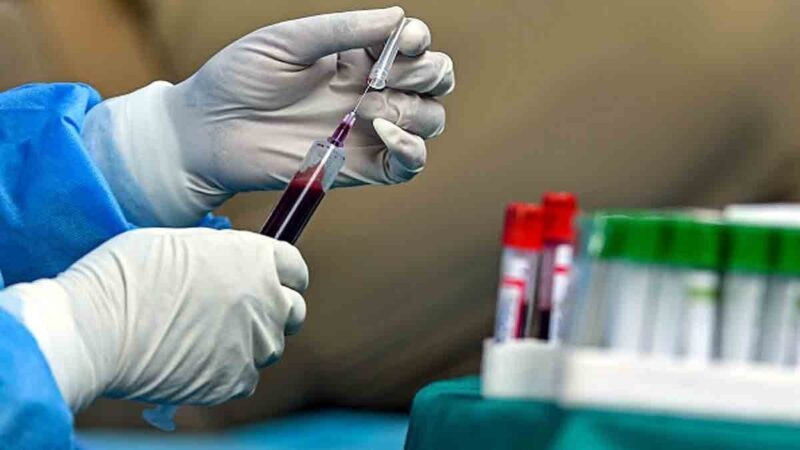
Rajkot Man’s Blood Group Deemed Rare, Joining a Select Group of 11 Cases Worldwide
rajkotupdates.news:emm-negative-rare-blood-group-found-in-rajkot-man-11th-such-case-worldwide: In a remarkable medical discovery, a resident of Rajkot, India, has been identified as having a blood group considered extremely rare. This finding has placed him among a small group of only 11 recorded cases worldwide. The uniqueness of this blood type has captured the attention of scientists and medical professionals globally. The discovery not only sheds light on the extraordinary diversity of human blood groups but also raises intriguing questions about their origins, significance, and potential medical implications. This article delves into the details of this fascinating discovery, exploring the significance of rare blood groups and the potential benefits they offer to medical research and transfusion medicine.
Also Read: rajkotupdates.news:a-historic-day-for-21st-century-india-pm-modi-launched-5g-in-india
Understanding Blood Types and Rare Blood Groups
Blood types are classified based on the presence or absence of specific proteins called antigens on the surface of red blood cells. The ABO system categorizes blood types into four main groups: A, B, AB, and O, depending on the presence of the A and B antigens. Additionally, the Rh system, which determines the presence or absence of the Rh(D) antigen, further refines blood typing into positive (+) or negative (-) Rh factors.
Beyond the ABO and Rh systems, there are several other rare blood groups, which are much less prevalent in the general population. These rare blood types often involve the presence of additional antigens, making them distinct and valuable for scientific exploration. The discovery of rare blood groups offers opportunities to deepen our understanding of the intricacies of human genetics and immunology.
The Rajkot Man’s Blood Group: Unraveling the Rarity
The Rajkot man, whose identity has been kept confidential for privacy reasons, was initially undergoing a routine blood test when the rarity of his blood type was first noticed. Further investigations revealed that his blood lacked the most common ABO antigens, A and B, as well as the Rh(D) antigen. Moreover, the presence of several unusual antigens made his blood type truly unique.
This extremely rare blood group has been classified as “O-negative, Bombay phenotype.” The Bombay phenotype is exceptionally rare, occurring in approximately 1 in every 10,000 people in India. Globally, it is estimated that only around 11 individuals have been identified with this blood group, hence the significance of this discovery in Rajkot.
Also Read: rajkotupdates.news:a-historic-day-for-21st-century-india-pm-modi-launched-5g-in-india
The Clinical Significance and Medical Implications
The discovery of rare blood groups like the one found in Rajkot carries immense importance in the field of transfusion medicine. Individuals with rare blood types, especially those with the Bombay phenotype, face significant challenges in finding compatible blood donors. This is due to their unique antibody profile, which can cause severe transfusion reactions if incompatible blood is administered.
The rarity of these blood groups necessitates the development of specialized blood banks to meet the transfusion needs of affected individuals. Additionally, the study of rare blood groups can enhance our understanding of the immune system and contribute to advancements in personalized medicine.
Furthermore, rare blood groups are invaluable in forensic investigations, as they can help determine the origin of bloodstains found at crime scenes. Their unique characteristics make them excellent markers for genetic analysis, aiding in identifying potential suspects or victims.
Also Read: rajkotupdates.news:a-historic-day-for-21st-century-india-pm-modi-launched-5g-in-india
Unraveling the Origins and Future Research
The origins of rare blood groups like the one discovered in Rajkot remain an intriguing subject of scientific inquiry. Genetic mutations and variations in certain populations have been identified as contributing factors to the development of rare blood types. Understanding these origins can shed light on human migration patterns, evolutionary biology, and the genetic diversity of different populations.
Further research is crucial to identify potential medical implications and explore the benefits these rare blood groups offer. Studying their unique antigenic profiles may lead to breakthroughs in the development of safer blood transfusion practices, improved diagnostic tests, and novel therapeutic approaches.
Also Read: rajkotupdates.news:a-historic-day-for-21st-century-india-pm-modi-launched-5g-in-india
Conclusion
The identification of an extremely rare blood group in a resident of Rajkot, India, places him among an exclusive group of only 11 cases worldwide. This discovery highlights the extraordinary diversity of human blood groups and their potential medical significance. Rare blood groups not only pose challenges for blood transfusions but also offer valuable insights into genetics, immunology, and personalized medicine. The study of these rare blood types promises to contribute to advancements in various fields, including transfusion medicine, forensics, and human evolutionary biology. Continued research in this area will undoubtedly unravel more mysteries and open up new possibilities for improving healthcare practices.

